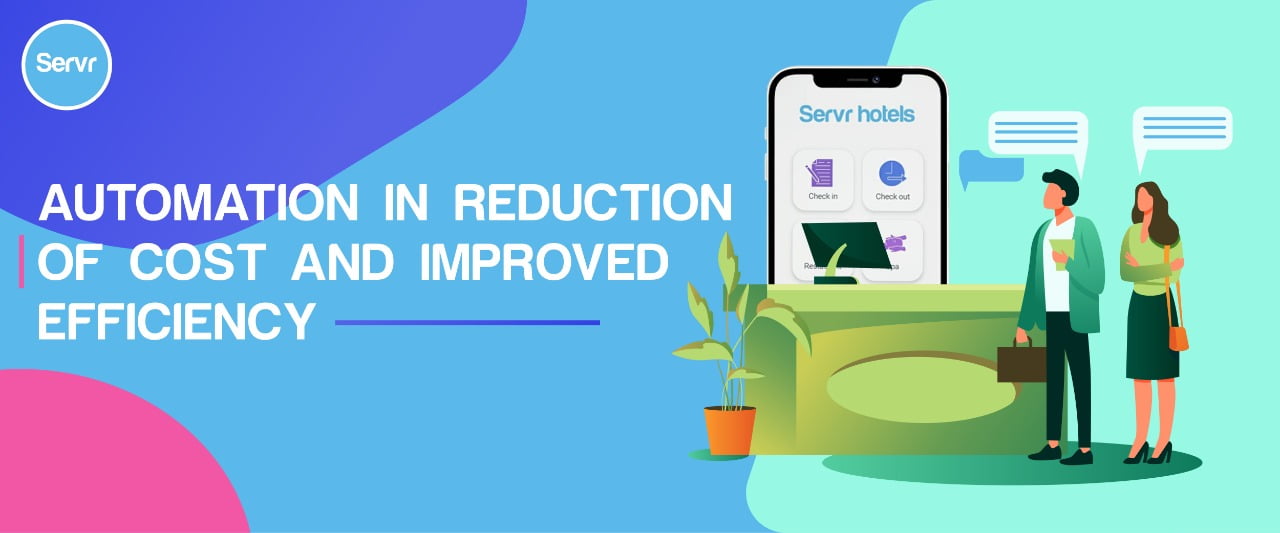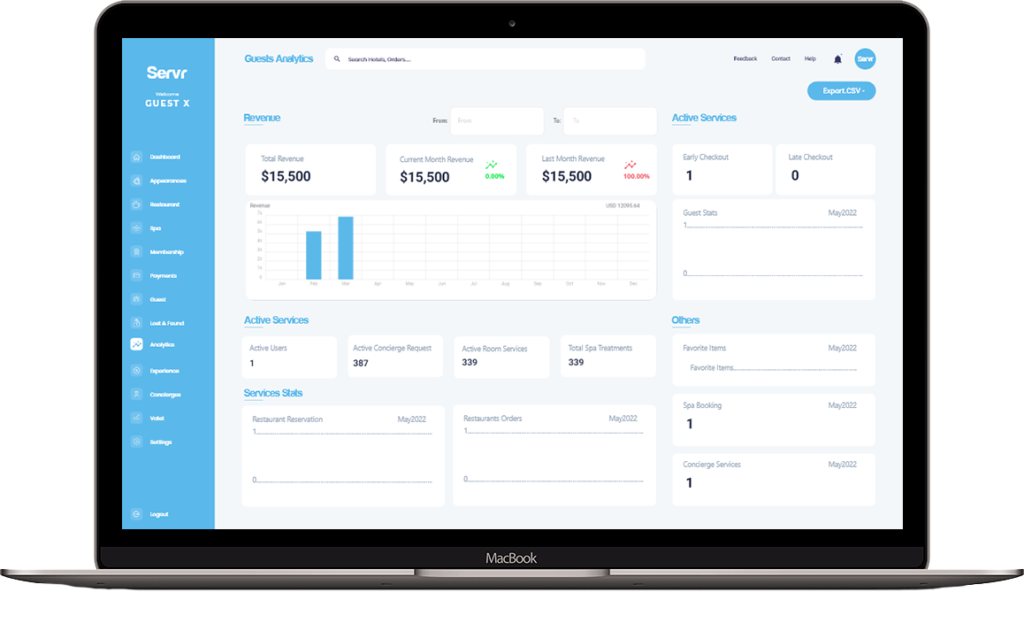
Although the hotel industry is expanding, employee turnover remains a major concern. The total turnover rate in the restaurants-and-accommodations industry was 66.3 percent in 2014, according to data from the Bureau of Labor Statistics Job Openings and Labor Turnover, compared to 44.4 percent for all private-sector jobs.
A hotel that has a high turnover rate loses tremendously because the expense of recruiting a new employee, which requires recruitment, onboarding, and training, is much higher than keeping a current employee. This has a greater effect on independent hotels than on big brands because small properties have the budget, time, and resource constraints, and training a new employee from scratch is difficult.
This is where hotel management software and automation will save an individual hotelier’s bacon. Let us look at some of the factors that contribute to employee turnover in the hospitality industry and how automation can help:
Reduces constant pressure and helps the staff maintain a work-life balance
The majority of staff turnover is caused by high job pressure and mundane tasks. The job can become monotonous at times, and there is no work-life balance since most workers work overtime. These problems can be alleviated by using Intelligent automated technology to carry out all operations efficiently. All activities, such as reservations, payments, revenues, folio generation, housekeeping role assignment, and processes at various POS outlets, such as the restaurant or spa, are managed by hotel management software, freeing up the time of the staff. Automation prevents errors created by manual data entry and ensures that operations run smoothly. Employees may use their spare time to focus on other essential activities or provide better service to their customers.
A more pleasant working climate, and a lower attrition rate
Another cause for staff turnover is when a customer becomes enraged at an employee for failing to provide a specific service. For instance, if a guest orders a meal in their room upon arrival and the employee forgets to add it to the room service menu, this may cause issues. Employees will also face criticism from managers, which will contribute to their dissatisfaction. If an employee is unable to devote time to visitors and they feel ignored, it can result in negative reviews, resulting in a bad reputation for the hotel. Guest orders can be handled more efficiently with automation, and the front desk executive can guide the order to the restaurant staff so that the guest is not inconvenienced. The hotel billing software online app automates the billing to room service, preventing billing errors from occurring during check-out. Staff will spend more time engaging with visitors from various nations, territories, and cultures thanks to automation.
Incentivizing the employees
Employees believe they are underpaid for a role that requires them to interact with visitors often, resulting in employee dissatisfaction. Employees appreciate it when you recognize and reward their efforts. Since the hospitality industry is focused on guest service, empower the employees to give their best to guests by thanking them and providing rewards based on their success. If your staff are capable of providing excellent service, your hotel will receive positive reviews and repeat business. Again, if the mundane tasks have been automated, the staff would be able to provide excellent service and entertain the guests with a positive attitude. Investing in cloud-based technology is less expensive, and management may use the savings to provide benefits to their employees.
AUTOMATION IN REDUCTION OF COST AND IMPROVED EFFICIENCY
We’re all about saving money, and we know that time is money. The more effective the systems are, the less time is lost, and efficiency rises, resulting in lower costs and higher sales. So, if you’re still using Excel and Word for invoices and reports, it’s time to evaluate the effect of manual and obsolete processes on time efficiency and expense and consider automating hotel processes to save both.
- Making a reservation is the most basic of hotel procedures. A visitor makes a reservation. Sending out a confirmation and a welcome email is a manual process for you. This leaves space for human error in the information sent, mail delivery delays, and other issues. When compared to an automated operation, this occurs automatically.
- Another example is a guest who makes a temporary reservation and must pay the deposit by a certain date. In a manual process, this would include checking accounts for payment on a regular basis, sending out reminder emails, checking with the accounting department for payment, and sending clarification or cancellation emails. This opens the door to human error, delays in sending updates, and, in the worst-case scenario, cancellation of the guest booking due to a late reminder, resulting in dissatisfied guests and possibly negative online reviews. There is no human interference in an automated process, resulting in zero errors and increased efficiency in performance.
These are only a few examples of how automation can help to improve guest experience and satisfaction. There are several processes that can be made more effective, including the check-in and check-out process, invoicing, delivery, management of travel agents and OTAs, and so on. The only reason against automation was the prohibitively high costs of infrastructure and maintenance. Another point was that re-engineering processes take time and money. Both claims have lost their force as a result of technological advancements such as cloud-based guest experience platforms. The benefits of automation are simply numerous in number, particularly given the low or no cost of installing and maintaining the program.
Inefficient, isolated, and disconnected processes can be transformed into integrated, streamlined, and simpler workflows using automation. By streamlining tasks and enhancing overall quality and reliability, automation improves performance. It acts as a customer management software for hotels and also ensures that the customer’s stay is smooth and productive from beginning to end.
If you want to avoid being left behind in the future, automation is the way to go. So, if you are looking for such an automated process and Hotel management software for free for your hotels, go ahead and check out Servrhotels. From the front desk to revenue management, every process is simpler, quicker, and more connected with Servr, a fully automated, convenient, and customizable solution to bring hotels into the future generation by bringing all guest services on a single platform.




